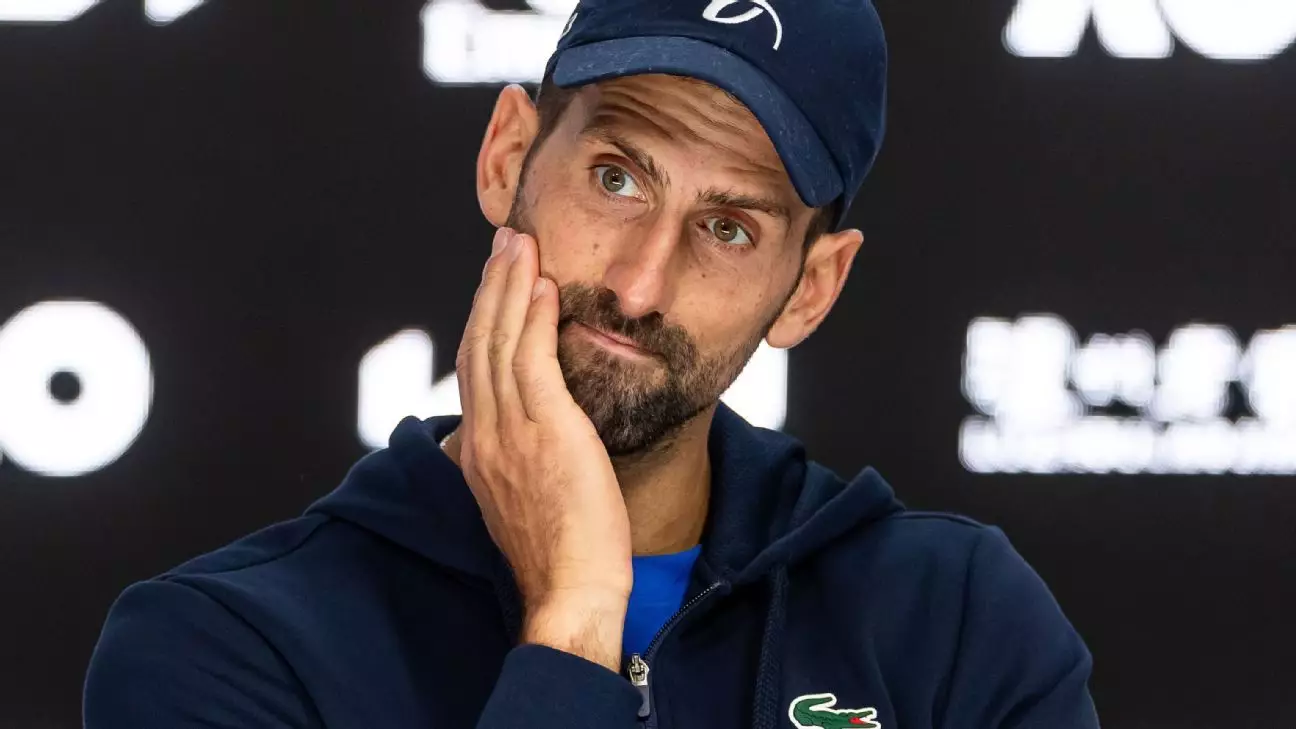In a move that has ignited discussions across the tennis world, Novak Djokovic has come forth advocating for enhanced representation of players within the often rigid structure of professional tennis. Addressing the media at the Miami Open, Djokovic made it clear: he supports the antitrust lawsuit initiated by the Professional Tennis Players’ Association (PTPA), which aims to challenge the monopolistic grip held by traditional tennis governing bodies. This lawsuit, rooted in the pursuit of fairness, intends to address the dire disparities in revenue sharing, thereby amplifying the athletes’ voices that have often been marginalized.
Djokovic, the illustrious 24-time Grand Slam champion, distanced himself from the list of plaintiffs in the lawsuit to encourage fellow players to take a stand. His decision to not directly attach his name to the case speaks volumes about his belief in solidarity and collective action among athletes. “I want other players to step up,” he stated, reinforcing his stance as not just a champion on the court but also a champion for change.
Unity Amidst Discontent
The PTPA’s legal action claims that the control exerted by the men’s and women’s tours, along with the International Tennis Federation (ITF), constitutes a “cartel.” This terminology underscores the organization’s serious accusations that power dynamics in professional tennis are skewed against the very players that generate excitement and revenue. Djokovic emphasizes that this fight is not merely about financial remuneration but about elevating the status and influence of players in negotiations that directly affect their careers.
Djokovic’s comments reflect a growing sentiment among tennis professionals. Despite his arguments for reform, he acknowledges the challenges posed by division that can stem from such disputes. His desire for unity to resolve these issues highlights a critical crossroads in the sport, as it advances into an era where player empowerment is becoming increasingly significant.
A Mixed Reception
However, not all players are onboard with the lawsuit’s strategy. The feedback from emerging stars like Carlos Alcaraz reveals a disjointed understanding of the initiative among the players. Alcaraz’s reservations—stemming from insufficient communication regarding his involvement in the filing—suggest that without comprehensive dialogue, the movement could face internal opposition that jeopardizes its goals. Djokovic has articulated a similar view, demonstrating his cautious optimism for the players and governing bodies to find common ground.
His confidence in the PTPA does not preclude him from expressing skepticism about specific aspects of the lawsuit. By indicating areas of disagreement, Djokovic illustrates the complexity of navigating such pivotal changes in the sport. It reinforces the point that players should not be viewed monolithically; instead, their individual interests and concerns must be holistically considered for progress to truly occur.
The Path to Progress
As the tennis world watches closely, Djokovic’s approach sparks hope that meaningful change may be on the horizon. His advocacy encompasses a wider vision for the future of tennis—one where players hold the reins to their professional lives, and their voices are respected and duly regarded. As athletes unite with the PTPA, they collectively lay the groundwork for a more equitable framework that promises to enhance not only their livelihoods but also the integrity of the sport itself.


Leave a Reply